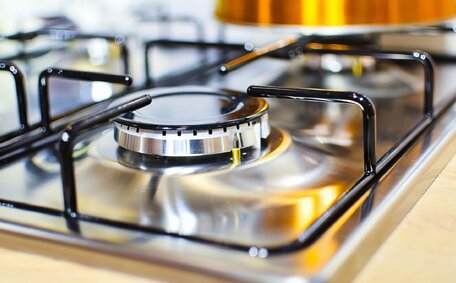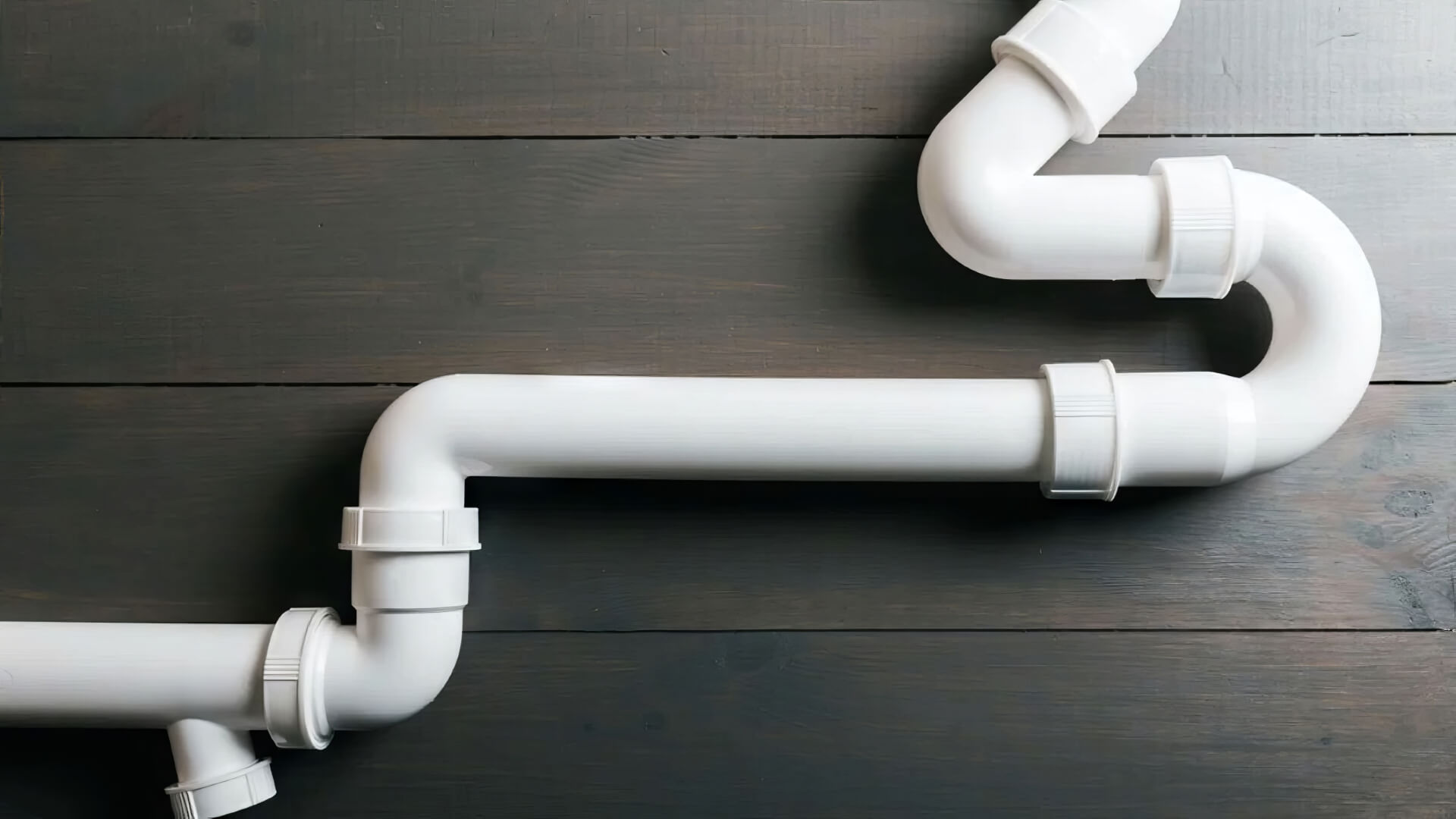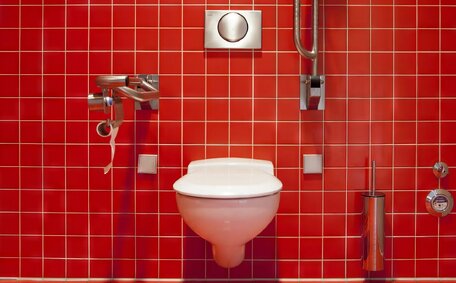Identifying the Source of the Leak in Your Hot Water System
When pinpointing the source of a hot water system leak, safety should always come first. Before inspecting any components of your leaking hot water system, be sure to turn off water supply as well as the power or shut off gas to avoid potential hazards.
Start by visually examining all exposed pipes and joints to check leaks, looking for signs of moisture or dripping water. Carefully run your hand along the bottom your pipes to feel for damp spots. Check valve connections and the pressure relief valve on top of your hot water tank as these are common sources of leaking water from a hot water system.
Also inspect your water tank, from the top bottom, for corrosion and cracks, as small water system leak issues can develop over time. The cold water inlet, hot water outlet and the drain valve underneath the tank are other areas to check.
Signs like condensation or rust around the base of the tank may indicate a hot water leak situation. You may also notice the water meter still running even when any water is not being drawn from the water mains, signalling a potential system leak somewhere within.
If you’re unsure about how to fix leaking issues on your own, or cannot find its exact location, contact a licenced plumber for a full inspection and repair work to prevent further damage.
Common Causes of Leaks in Hot Water Systems
There are several common reasons hot water systems can start to leak over time, but with proper maintenance, you can do much to prevent these issues:
Age and Wear
As systems get older, components like seals and pipes degrade, which leaks your hot water to escape. Tank corrosion and storage tank cracks also develop which can lead to leaks. The lifespan of a tank can be more than a decade, but hot water systems generally last 10-15 years before needing replacement.
Faulty Installation
Incorrect installation is another key factor that could result in leaks your hot water unexpectedly. Loose pipe fittings, over-tightened valves, and poor weather sealing can all create gaps for new water leak paths.
High Water Pressure
Consistently too high water pressure can cause hot water spots of strain on pipes, joints, valves and the tank itself. The average water pressure your home should maintain is 50-60 PSI, considering the conditions inside your tank. Excessive pressure, especially from a faulty pressure valve, accelerates wear and increases the chance of leaks.
Lack of Maintenance
Not flushing or servicing your water heater regularly allows mineral build-up inside tank which could lead to issues. This build-up damages components over years of use and eventually causes cracks and leaks.
Having your hot water service undergo a routine check by a qualified plumber every 3-5 years helps prevent leaks, as they may identify a need to turn off and service worn parts. This regular maintenance helps maximise the operating life of your top water heater.
Loose Pipe Fittings and Connections
Loose fittings and connections on pipes are the most common source of leaks in hot water systems. Over time, the vibrations from water flow and pressure changes can loosen threaded pipe joints and cause gaps to form.
Some signs of loose fittings and connections include:
- Visible signs of water leaking or dampness around a joint
- Dripping water from a fitting, valve or relief valve
- A faint hissing noise near connections
Before attempting any repairs, determine if you need to switch off the system to safely tighten any loose threaded fittings. Ensure not to overtighten, as this may hinder the system’s ability to supply hot water efficiently. If the joint is still leaking, the pipe thread or gasket may be too worn and need replacing.
For compression fittings, located above the water heater, tighten the nut or replace the olive and brass grip ring inside. Be careful not to apply too much pressure and crack the fitting body itself.
If leaks persist from fittings, it’s best to call licensed professionals to inspect and properly reseal or replace any worn connections, ensuring instant hot water flow.
Excess Water Pressure
Having excessive water pressure entering your system can strain components and potentially harm the power supply, causing leaks in your hot water over time. Switching off power to regulate high water pressure range within 50-60 PSI (345-414 kPa) is advisable for system integrity.
You can install a pressure limiting valve to cut off main water line pressure from constantly straining the system. Also check your water metre to ensure there is not any hot water being wasted - movement indicates excess pressure which can allow water to flow unnecessarily.
Consistently high pressure causes faster wear and failure in your house’s plumbing fixtures. Common signs include leaking valves, joints, and corrosion around tank fittings. It can also damage the water tank itself through cracks and pinhole leaks.
Reducing water pressure extends the life of your heating system. If your home pressure exceeds 80 PSI (552 kPa), a licenced plumber can advise on the best ways to regulate this down to safer levels.
Faulty Valves and Gaskets
Faulty valves and worn out gaskets, often found leaking top sections, are common causes of leaks in hot water systems. The valves and gaskets seal pipe connections and fittings, and failure of these components creates gaps for water to escape.
Signs of issues with valves and gaskets include:
- Visible drips or moisture around a valve
- Hissing sounds from faulty seals
- Corrosion around fittings and connections
One crucial valve is the tp valve, also known as the pressure relief valve, near the top of the water tank. This safety valve releases excess pressure from the system. If the relief valve leaks consistently, it likely needs replacing.
Replacing faulty valves and gaskets involves a process where you need to have turned off water supply, drain pipes, remove old seals, and install new components. This requires technical expertise, so it’s best to hire a qualified plumber for this repair work.
Sediment Buildup and Corrosion
Over time, sediment from water supply lines can accumulate inside hot water system tanks and pipes. This build up of mineral deposits, corrosion particles and other debris causes damage in a few key ways:
- It accelerates corrosion, especially around tank fittings and connections where small water leaks form.
- It obstructs water flow, putting strain on pipes and valves.
- The added pressure can cause new cracks or worsen existing tiny leaks.
Regular maintenance helps minimise sediment buildup and can cause hot water quality to improve, impacting the longevity of your hot water system. Qualified plumbers also check interior tank corrosion during servicing.
If you notice new leaks combined with reduced water flow, you’ll probably need to investigate sediment accumulation as a cause of the strain. Schedule a full inspection to identify any required repairs.
Assessing Leak Severity and Repair Options
When discovering a leak in your hot water system, it’s important to assess the severity to determine if a quick fix is possible or if larger repairs or full replacement are needed.
Minor leaks, often only small amounts water, from fittings, valves or pipe connections can often be resolved by tightening or replacing worn gaskets and seals, effectively fixing the problem. However, water tank leaks that need fix leaking from within the unit itself indicate more significant issues.
Factors to consider when assessing leak severity:
- Rate of water flow. Is it only a small amount water being lost to a slow drip or a steady stream?
- Location where water is leaking. Is the leak coming from the tank or external pipes/fittings?
- Age of system. Older tanks tend to develop more cracks and corrosion.
For small leaks limited to external fittings, call your plumber who can then determine where the leak is and reseal connections to stop flows. Larger leaks or signs of extensive corrosion usually require either tank repair or full system replacement.
It’s prudent to seek professional advice and find out more about the best solution for hot water system leaks, as the decision will depend on multiple factors. Annual maintenance can also help detect leak your issues early before catastrophic failures occur.
DIY Temporary Fixes for Minor Leaks
If you have a minor leak from a hot water system fitting or connection, there are a couple temporary fixes you can try while arranging professional repairs:
Tighten fittings
For threaded pipe connections that are slowly leaking, carefully use an adjustable wrench to tighten the fitting an extra quarter-turn. Take care not to overtighten. This may stop small leaks temporarily.
Pipe clamp
Small leaks along straight sections of pipe may be temporarily fixed by clamping the area with hose clamps or metal pipe clamps. Position the clamp over the leak and tighten just enough to compress the pipe walls together.
While these DIY methods may hold off leaks short-term, the underlying issue still needs to be properly repaired by a qualified plumber for a permanent solution. Continued leaks can worsen damage over time.
Determining if Professional Help is Needed
Seeking professional water service assistance from a licenced plumber can provide solutions if you spot your water heater leaking from the tank itself. Tank leaks indicate corrosion, cracks or other deterioration that requires repair by a qualified technician.
It is also mandatory to safely turn off gas and call a professional when dealing with the intricacies of gas hot water heaters. Gas components and connections, crucial to the functioning of gas hot water systems, should only be serviced and replaced by an authorised gasfitter due to safety risks if improperly handled.
If your hot water system is over 10 years old and experiencing major leaks or loss of efficiency, a full replacement by professionals may be the best solution. With extensive expertise installing all major hot water system brands, our team at Campbelltown Plumbing can provide practical advice regarding when replacement is recommended over further repairs.
For superior hot water system service and leak troubleshooting, contact Campbelltown Plumbing on 1300 349 338 or email [email protected]. With over 25 years serving the Campbelltown region, we understand what do to resolve all hot water system issues.
Replacing Worn Parts and Fittings
Over years of wear and tear, components like valves, pipe fittings and tank connections can become damaged or corroded. Replacing these parts is necessary to stop leaks and restore integrity to your hot water system.
Identifying which specific fittings or valves need replacing involves carefully inspecting each component for cracks, leakage, and corrosion damage to see how extensive the issues are. Check manufacturer date stamps to determine the age of parts.
When replacing any component, use parts that are compatible with your system. When replacing any component, use parts that are compatible with your system.
For gas water heaters, new valves must be gas certified. For gas water heaters, new valves must be gas certified.
While isolating and replacing small fittings is often a DIY job, replacement of some components like pressure relief valves should be left to qualified plumbers for safety reasons. Our technicians at Campbelltown Plumbing keep extensive spare part inventories to facilitate rapid hot water system repairs.
When to Repair vs. Replace Your Hot Water System
Deciding whether to repair or replace your ageing hot water system can be a difficult decision. As a general rule of thumb, if your system is over 10 years old and experiencing major leaks or loss of efficiency, replacement may be the wiser option.
Signs that your unit may be beyond repair and require replacement include:
- Multiple leaks from the tank itself
- Heavy internal corrosion and sediment buildup
- Frequent loss of hot water supply
- Extremely high energy bills from inefficient operation
Conversely, minor leaks limited to fittings or pipes may be easily repairable by a qualified plumber trained to supply hot solutions. Upgrading individual parts can also extend the system’s lifespan if the tank remains in good condition.
Our team at Campbelltown Plumbing have the necessary expertise to assess the state of your system and advise whether undertaking repairs is worthwhile or if a full replacement is the optimal solution. With over 25 years of experience, we take great pride in providing honest recommendations tailored to each customer’s unique situation.
Selecting the Right Replacement System
When selecting a new hot water system for your home, the main considerations are size, fuel type, and energy efficiency rating. Begin by working out what size tank or electric water heater is needed to meet your household demands based on factors like number of bathrooms or occupants.
Determine the most suitable energy source: electric, gas instantaneous, or electric solar hot water systems. Electric or gas is generally more cost effective upfront, while solar has larger long term savings but higher initial cost. Take into account your budget allowances.
Check the energy star rating for an indication of the system’s efficiency level. Higher rated units have far superior insulation and therefore much lower running costs. However an A grade efficient gas system may still be cheaper overall than a poor quality electric system.
Our technicians, your local experts at Campbelltown Plumbing, ensure there no unwanted complications when providing personalised advice on selecting the optimal replacement hot water unit for your individual situation.
Hiring a Licensed Plumber
When it comes to plumbing repairs or installations, like ensuring instant hot water access, it is crucial to hire a licenced professional plumber. Attempting DIY fixes without proper training can result in gas leaks, water damage, or even injury.
Licenced plumbers have undergone extensive education and you can find out more by testing to ensure they safely adhere to all local plumbing codes and standards. They also carry full insurance coverage protecting your property from damages or accidents.
The team at Campbelltown Plumbing are fully licenced and insured plumbers with over 25 years of experience serving the local community. We keep completely up to date with the latest plumbing regulations and best practises. Our experts can correctly identify issues and provide suitable methods to fix leak causes and implement solutions for your hot water systems’ problems, ensuring reliable, long-lasting operation.
Don’t take risks by hiring unlicensed contractors. For urgent plumbing needs or preventative maintenance, contact Campbelltown Plumbing on 1300 349 338 to schedule an appointment with our licenced professionals.
Preventive Maintenance to Avoid Leaks
Performing regular preventive maintenance can help prevent hot water system leaks and prolong its lifespan. We recommend inspecting your water heating system annually and flushing the water tank to reduce sediment buildup.
Check pipe connections for corrosion to prevent hot water tank leaking and ensure fittings are tight. Tighten any loose joints but be careful not to overtighten. Have worn washers and gaskets replaced to maintain a proper seal.
Examine the anode rod inside the tank as this corrodes over time, leading to small leaks if not replaced. Flushing the tank prevents mineral scale accumulation on the rod and other components. Hire a plumber to replace the anode rod every 5 years.
Also check water pressure and make sure your relief valve, which is similar to a tap lever, isn’t dripping, as consistent dripping indicates it needs replacing. Optimal pressure is 50-60 PSI.
At Campbelltown Plumbing, there’s no guesswork involved as our licenced technicians perform comprehensive hot water system maintenance. We thoroughly inspect all components and provide honest advice regarding any need for repairs or part replacements to avoid leaks.
Contact us on 1300 349 338 for experienced maintenance servicing, keeping your system operating safely and efficiently for years to come.






